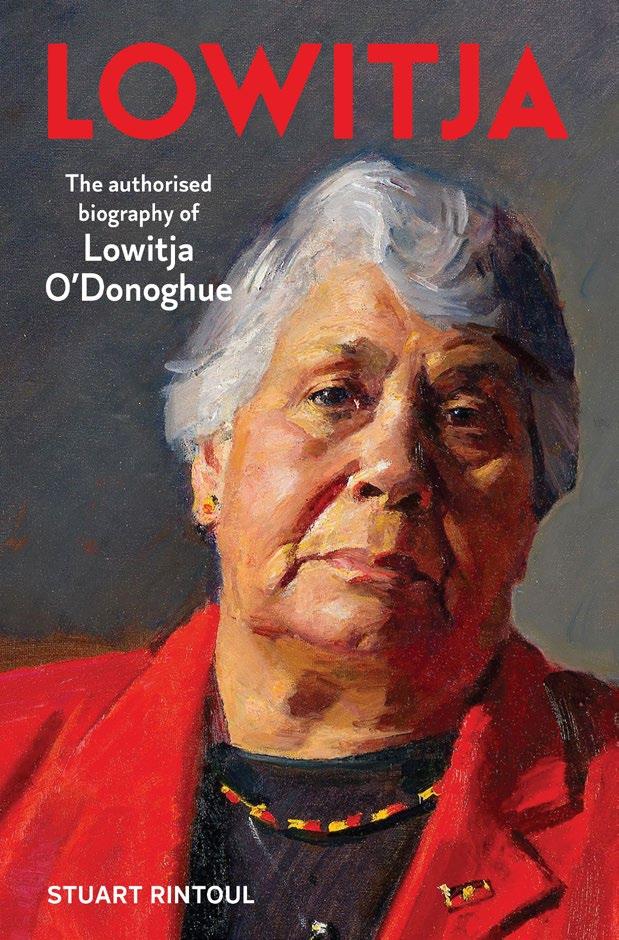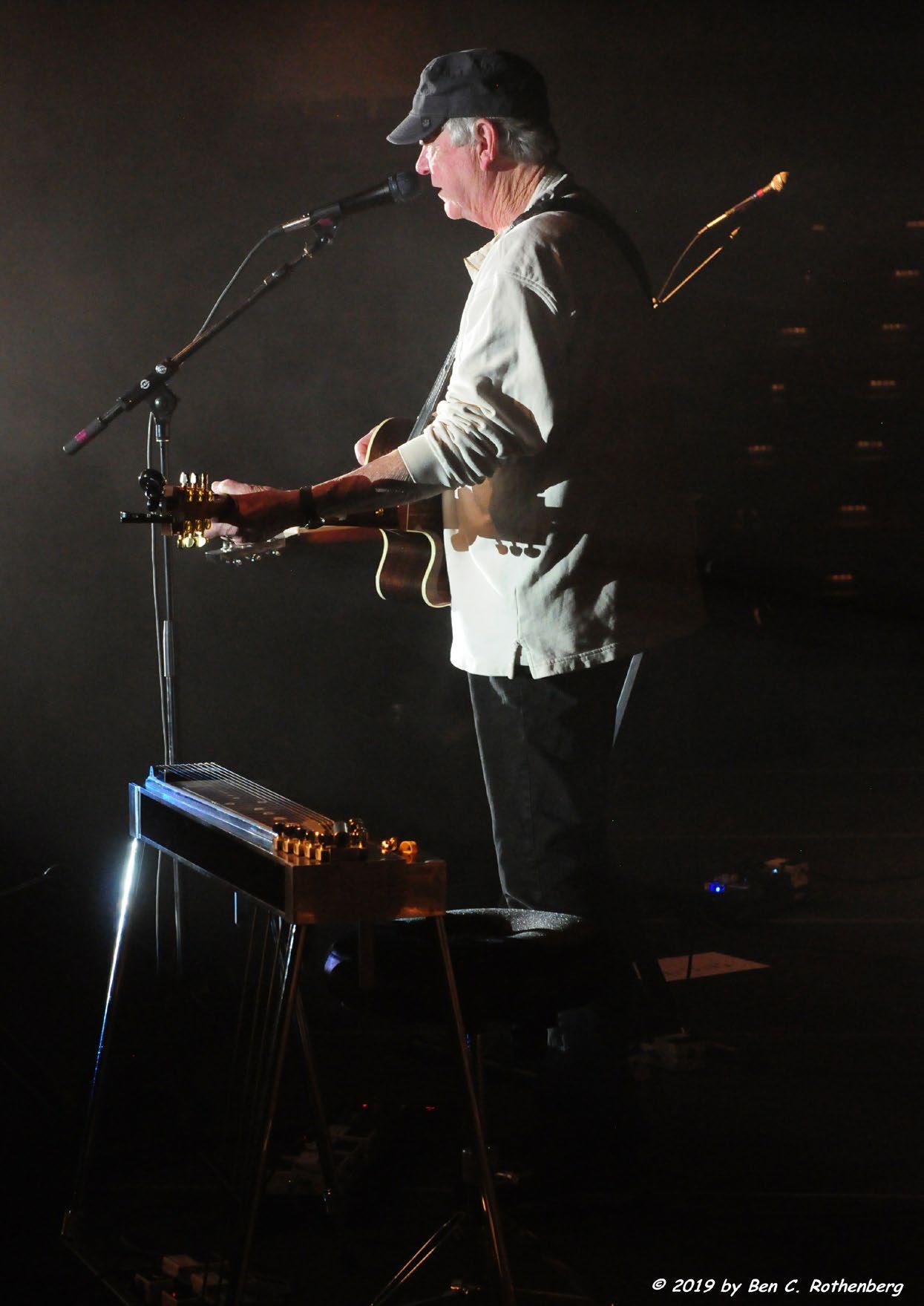
50 minute read
Rusty Young
GTR: Hello, Rusty. It’s a pleasure speaking with you. RY: Yeah. Hi. Likewise, Greg. GTR:How are you? RY: I’m fine. Boy, you’re a long way away, aren’t you? GTR: Yeah, yeah, yeah. What’s it like there? RY: Well, the weather has just turned cold and kind of fall-like. And the leaves are all turning and it’s been pretty rainy, but we live in the Mark Twain National Forest in Missouri, you know, in the middle of the United States. Yeah. So, you know, we virtually live in a forest and so it’s a lot of fun to see the seasons go by, the four seasons that we get here. We built a place that overlooks a river that runs through the Park and we sit way up high on a cliff. And it’s very cool. GTR: Well, Rusty, it sounds absolutely beautiful. And in its own way, very Poco-like. RY: It is very Poco-like. Yes. GTR: Thanks for joining us here, Rusty, and taking the time for a chat. Look, Rusty, you’re the mainstay, really, of the legendary country rock group Poco. How did it all start? RY: Well, it started in the late sixties. In ‘67, I was asked to go out to Los Angeles and do a session for Buffalo Springfield. And they were doing their Last Time Around record, which was their final album. And it was an album that the band didn’t really want to do because they’d already really broken up, but they owed Atlantic Records one more album. They were working on fulfilling their contract. And so I was asked to come out and join Jimmy Messina and Richie Furay. We had a friend in common who recommended me, and I flew out from Colorado to LA and played on a Richie Furay song on the Last Time Around record. And that’s how I met Jimmy and Richie. And the three of us... They didn’t have a band, you know. Springfield was broken up. And Richie and Jimmy didn’t have a band. They wanted to put a band together. And when I met up with them, we had a lot in common, because I played or I play all these country instruments, like mandolin and banjo and Dobro and steel guitar. I was... The combination of, with Jimmy’s guitar playing, and my stuff that I could do, and then Richie’s songwriting and his great vocal, it was obvious. We just needed a rhythm section of bass and drums and we had a band. And so that’s how Poco got started. GTR: Well, it’s wonderful that that should occur, too, Rusty. And to just borrow a line, when you say about the Dobro and the banjo, was that you at the end of Rose of Cimarron? It was wonderful. RY: Oh, well, thank you. Yeah, that’s a blessed, indirect thing. We were on the road, it was the middle seventies, and I think it was ‘76 when we released that song. So, it was probably ‘74, ‘75, when I wrote it. But we were traveling through Oklahoma and at a hotel, they have these racks full of brochures about things that you can go see in the area. And I was looking at the rack while we were checking in and there was a brochure and the headline on the brochure was, Rose of Cimarron. And I thought, “Boy, what a beautiful phrase that is.” And I picked up the brochure and read about going to Rose of Cimarron’s house and visiting her cabin and the whole story. And I started looking into it and that’s what gave birth to that song. GTR: And how beautiful and what a poetic title, too, for a song, Rusty, and a great utilization of lyrics and tune, too. So, fantastic. Where did the name Poco come from? RY: Well, it was great. It always is difficult to find a band name that everybody likes. So, when we first started playing at the Troubadour in LA, in like ‘69, we didn’t have a name. So, we would throw names in a hat, everybody would throw their favourite name in a hat before we played that week. And our manager would pull a name out of the hat and that would be the name we would use. We had RFD, which is, you know, like Rural Free Delivery, was the name. It was in the hat. And there were Popcorns. Somebody wanted to call it that. And all, you know, all different names. Jimmy Messina’s name was Flintlock Pepper Box. GTR: Well, that’s a good one. RY: Our manager, he would throw a name in there, too. And he looked like there’s a cartoon character called Pogo. And he looked just like that cartoon character, a very strange little guy. And he threw Pogo in the hat. And it just so happened one week when we were playing at the Troubadour, that was the name we pulled out. So, we were playing as Pogo and it turns out that about half a dozen different labels came to the shows that week. And at the end of the week, we had three or four offers for record deals for Pogo. RY: And so we played as Pogo, and we were going to sign a deal as Pogo, when Walt Kelly, the guy who wrote the comic strip, sued us. Said we couldn’t use that name. So, because everything was moving so quickly, we thought, well, if we just change the G to a C and call it Poco, maybe they won’t even notice. So, that’s how we got the name Poco. Plus I liked it. Here’s to my high school Spanish, you know, poco meant little and I thought that was, you know, it’s a cool little band. And I thought, so, Poco makes sense. GTR: Well, in many ways, actually, and well said, too, Rusty. And thanks for explaining that to everyone that will be enlightened, because for some reason Poco, to me, sounds cool. RY: Yeah. And the manager that we had that came up with the Pogo thing was an idiot. And he had been the Buffalo Springfield’s road manager, and he was really not qualified to be on the big stage. And he had a great comment about Pogo. He said, “Oh, that’s terrific. Because on a billboard, you know, outside a theatre, because it’s only four letters, the letters can be really big where, you know, a Buffalo Springfield or Jefferson Airplane has so many letters, they have to be small.” Which was so foolish of a guy who’d actually been in the business because you know, the letters that go on those places, they’re all the same size. GTR: That’s fantastic. That’s fantastic. You can fit more letters on the back of a postage stamp. RY: This is the same guy who... I was at the office when we got a call from our agent and he said, “They’re doing this big festival up in Woodstock, New York. That’s never been done before. And it’s going to have Hendrix and the Who and CSN is doing their first show and all this kind of stuff, and they want Poco.” And he said, “Well, when’s the date?” And they told him, and he said, “Well, I’m sorry, but we’ve got a better offer.” And so we didn’t play Woodstock. Because Woodstock was only... They were only paying $500 to the acts. And I think we got $700 and we played a gymnasium in Long Beach, California. So for $200, we missed out on Woodstock. So anyway, yeah, we made some big mistakes in the very beginning and the first one was not having a professional manager. GTR: Actually that, thanks. That’s such an enlightenment to hear that incredible stuff. Because, of course, if you see the movie, the original movie at least, a lot of people didn’t realize there were some acts that actually appear there, like Creedence and everything. And to imagine that Poco could have been there, too, would have been icing on the cake for everyone,
TLP Editor Greg T Ross speaks with Rusty Young, backbone of the legendary country-rock group Poco.
Advertisement
PODCASTS: www.thelastpostmagazine.com/tlp-interviews
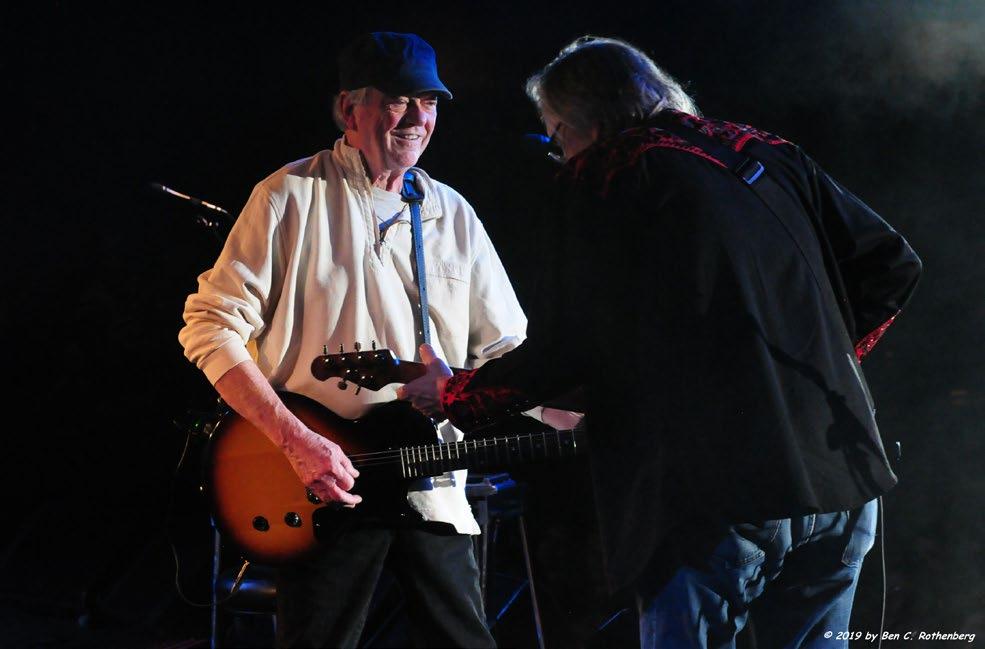
I know. But, well, it’s another part of the legend, I guess, of the group, too. You started playing musical instruments at a early age, Rusty. Was it something your parents forced you into or did you feel an allegiance with music from a very early age? RY: Well, no. Yeah, I was six years old when I began lessons on steel guitar. And you know, that was back in the fifties. And so, from the time I was born, my parents were big country music fans, and every Friday night they would go to a country bar in Denver, Colorado, called The Anchor. And they’d dance and spend the night and listen. There was always a live country band. And my dad loved, you know, country music and the steel guitar. And so, they would take me when I was a baby and sit me up on the bar. They dressed me up like a little cowboy. I had a little cowboy outfit when I was, you know, like four years old. I would sit on the bar and eat those horrible pickled eggs and drink, what they called, a Roy Rogers. GTR: What’s a Roy Rogers? RY: A Roy Rogers is a drink with 7-Up and cherry juice, you know? GTR: Wow. Pour me one. RY: And so, yeah, they propped me up at the bar and probably scared the hell out of the... By midnight everybody was so drunk and they’d look over and see this little midget cowboy on the bar, they probably... But anyway, so I’ve always listened to music, especially country music, since I was born. And so, like I said, I was a natural. I loved steel guitar and I loved music. And it was something that was important because of that contact with my parents and that kind of music. And it turned out that I had a talent for steel guitar, in particular. And so, you know, by the time I was 10 and 12, I was winning amateur contests. And I even started playing for money when I was 12 years old. I’d play weekends up in the mountains in Denver, Colorado. My dad would pass the hat. We played at a little bar and my dad would pass the hat and I’d make maybe $10 on a Sunday afternoon. And I was the richest kid I knew. GTR: Rusty, back in those days, that’s quite a bit of money for a little kid. RY: It was. It was. GTR: Did you spend it wisely? RY: I don’t remember. GTR: Well, you know, the world is thankful to your parents for this instillation of music into your soul and spirit. But it was always there, I guess. It was always going to evolve, but maybe it evolved early because of your parents’ insistence, but Rusty Young, the little cowboy, getting the hat passed around. That’s incredible. Geez, wow. And such a beautiful image. Yeah. RY: I think a lot of the gifts that I got came from my grandparents. My grandmother was a piano player and my grandfather had a big band in Colorado. They used to play up at all the resorts in the mountains in Colorado, back in the twenties and thirties. And my grandmother would play the piano for silent movies in Denver at the theatre’s. And at the time there wasn’t really sheet music for them to play that went with the movie. So, what she would do is, she would sit down and watch the movie and just play what she felt as she was watching the movie. And so, I think that creative thing from her when she was doing that, that’s just what I do. And, you know, that’s what happened is, I think that I gained that probably from her and have my grandparents to thank for that kind of edge that they gave me in creativity. GTR: Actually, you’re probably right, Rusty. It’s something that, I mean, geez, when I was, been a student of music in your genre for a long time, and I was thinking about this some years ago about, I was looking at the different line-ups of Poco and the changing themes, but also the fact that Poco’s music remained very much the same in many ways and quite brilliant. You’ve been a mainstay of that group a long time, and you’ve actually carried the flag for a long time. So, I guess, yeah, we can be thankful for that from you. What was your first group? RY: Actually, well, you know, I played in country bands. Like by the time I was 14, I was playing in country bands with guys who were much older, in their thirties. So, I’d been in a lot of bands, but the first rock and roll band I joined, that was where I met George Grantham, who I got into Poco. And that’s where, you know, Randy Meisner and I were friends in the mid-sixties and we were doing, you know, Beatle and Rolling Stone covers back in Denver, Colorado. My local band was called the Doenzee Cryque, which is very bizarre. They rehearsed in a room above a hardware store. And the hardware store was named Doenzee Cryque. And so they used that name. D-O-E-N-Z-E-E C-R-Y-Q-U-E. GTR: So, you learned from an early age, too, Rusty, I guess, as you said, with lots of older people, so your observations of the music, was it anything... Was it all a big
thing for you back then? Or did you take it in your stride? RY: What? Well, no, it was great because I was kind of a child prodigy and, you know, here’s this 14, 15, 16 year old kid playing with the pros, you know. And I played in the very best with the very best people in Denver, Colorado, and playing country music. But country music, you have to understand, was the perfect training ground for Poco and for the country rock movement that we started in California in the late sixties, because country bands back in the sixties, we didn’t play just country. Sure, we played, you know, Ernest Tubbs or Hank Williams, but we’d also played Buddy Holly and we’d also play Chuck Berry. That’s what you had to play in those bars in order, you know, to be popular. And so, it was a perfect thing. You know, Everly Brothers. It was the perfect combination of country and rock that we were playing before they called it country rock. GTR: So brilliant, too. I mean, when you look at it, by accident or by intention, the music of Buddy Holly and the Everly Brothers mixes with country music so well. RY: Yeah, it was, well, it was country rock, for sure. I mean the Everly brothers were probably the first country rock band. And then I got to be really good friends with Ricky Nelson. He loved Poco. And you know, Ricky, those early mid-sixties records that he was doing, that’s country rock with James Burton playing guitar. Come on now. That was really country rock. So, that to me, and then Ray Charles, you know, actually doing that country stuff that he did, you know, Georgia, and all of the country. He even put out that country album in the mid sixties, that everyone thought was- ... and it was brilliant. There was that before Poco came along, but that wasn’t really popular. The English invasion came in and wiped out the Ricky Nelson’s of the world. And, you know, as far as music went. But then with the Buffalo Springfield having a country edge to it, and me being a little small part of that, we led the way, when we were doing Poco, we led the way for country rock music. California country rock music. And you know, that was the whole scene. The thing about it was, is that when we were playing at the Troubadour, it was, you know, the big critic of the LA Times, Robert Hilburn, came to a show and the headline of the review was, “Poco is the next big thing.” There was a lot going on with us. There wasn’t anybody else playing country rock music or playing that music, but everybody went, “Oh, yeah, this is, you know, this makes sense.” And we’d been rehearsing. We rehearsed with a lot of different people, or practiced, trying to put our band together. And one of them was Gregg Allman. Gregg hung out with us for a while. And, you know, obviously that was not the perfect choice. He had a, you know, bigger fish to fry. And one of them though was Gram Parsons. Because he was an old friend of Richie’s. GTR: Yes. RY: Gram came and hung out and we played together and talked about doing that kind of music. And we showed him what we were doing. It was Richie’s rock and roll songs with country instruments as the background. And at a certain point, he left the band. He and Jimmy Messina didn’t get along. And so he left the band and joined The Byrds because The Byrds had just fired David Crosby and they needed a rhythm guitar player. So, he went to The Byrds and he took what we were doing. And, you know, those guys had all come and seen us at the Troubadour and said, “You know, this is what we should be doing”. And they did. But they’d had a record contract. They were signed to CBS. So, when they said, “Well, let’s do this, you know, try this country rock thing Poco’s doing,” they could go into the studio the next day and start recording. Where we didn’t have a recording contract. It took us another six months before we signed with Epic Records. So, Sweethearts of the Rodeo actually came out a little before our first album. And it was simply because they had a record contract and we didn’t. We had to finalize, you know, do the lawyers and all that kind of stuff and pick out which one. So, we were behind them, even though we were ahead of them. GTR: Yeah. Well said, Rusty, and thanks for explaining that because actually I was going to, I Feel a Brand New Heartache Coming On. I was going to ask that about The Byrds and Gram and the Flying Burrito Brothers. But you’re actually ahead of that. But this record contract thing actually meant that yours came out after. RY: Right. And you know, what happens is people, well, journalists, or people who are interested, will go back and look and see that Sweethearts came out before Pickin’ Up the Pieces and assume that they had the idea before Poco, which just isn’t the case. It was just a matter of contracts. GTR: Yeah, that’s fine. It’s brilliant to hear you explain that. Now look, I was going to say, too, Rusty. You’ve had some great musicians go through your group, Poco, you know. Randy, Tim, Richard, Jim Messina, Paul Cotton. And what’s the classic lineup to you? Just without wanting to... But what’s the classic line-up that you feel that you’re at your best? Maybe it’s what’s happening now, but what is that line-up, do you think? RY: Well, the magic line-up was the very first one with Randy Meisner and Jimmy and me, Richie, and George. And that was playing... It felt like the Beatles. It was really special. The music was something that hadn’t really been done, like we were doing it. And there was a real excitement. You know, at a concert we’d play at the Troubadour, there’d be George Harrison in the audience and sitting next to him would be Waylon Jennings, you know? And like I said, Ricky was a huge fan. And Ricky would come with Ozzie and David, his brother, and, you know, sit right next to the stage. Like every time we played. And there were just, you know, movie stars and, you know, big producers and all that kind of stuff, there was a real excitement. And the band was doing something new. And it was such a great grouping of original musicians. I mean, I’m a huge Randy Meisner fan. You know, we’ve been friends since high school and his voice and his touch on the bass to me is just like nobody else. And some of those records, like One of These Nights without Randy as vocal, it’s just not the same. And of course, you know, Take It to the Limit. GTR: He’s a great vocalist. He’s almost like a Roy Orbison. The notes he gets is beautiful. RY: Well, yeah, a little. Really unusual, a very, very cool voice. And I’d always wanted to be in a band with him. So, when I got the chance to get him in Poco, I did. But he didn’t get along. He and Richie didn’t get along and unfortunately brought that to an end. But that band with Jimmy Messina and his guitar playing like James Burton style. And then I could bring to it with the steel. Steel guitars weren’t in rock and roll bands. They didn’t, you know, that didn’t happen. You didn’t have banjos and steel guitars in a rock and roll band. So, what I brought to it. And then George was a really good original drummer, and he has a great high voice just like Randy. Those two high voices were unbelievable together. And then, you know, Richie with it, and he’s such a great singer and
songwriter, you know, and a special artist in his own way, his own right. That band was magical. And that was something. If Randy would have stayed. If things would have worked out with that particular, you know, because he left before Pickin’ Up the Pieces came out. If he’d have been able to... If we’d have been able to keep that band together for, you know, another two years or three years, I think history would have been a lot different. GTR: Yeah, it was a very cool lineup. RY: Yeah. GTR: You were just explaining to me about how cool it felt and everything, which means you had an understanding, too, Rusty. It must have felt quite unique playing that music that you knew that you were just doing something completely new in many ways. Must’ve been beautiful. RY: Yeah, it was really great, but you know, I don’t regret... I do wish it could have gone on a little longer in the beginning, but I don’t regret how things have gone down because it’s been such a great learning tool for me. Because when we started the band, I was just an instrumentalist. That was my job in the band was to bring that instrumental side to it. And then as people have moved through the band, I’ve learned I’ve been able to be around great songwriting. I mean, like Neil Young used to come over to Richie’s house before his first solo record. And play songs he was working on. And so I, you know, I could sit there and there’d be a fire in the fireplace and like just the two of us. And he and I would play a song and say, “What do you think about this?” And then, you know, and on his first album, Jimmy and George were the rhythm section on his first album. He used the Poco guys. And then the next album, Mountain, he hires Ben Keith as a steel player. ] GTR: That’s right. And what were they called? What was that, that he was a part of the back up group of Neil’s? Yeah, that was incredible. Incredible stuff. So, look, Rusty, I’ve got a couple of friends that are really devotees and fans of your music. And someone asked me to ask you about the Paul Cotton era. Was that a good, Paul Cotton? What happened with Paul? RY: You mean when he joined the band? GTR: Well, yeah, how did that evolve? Because, actually, I must admit, I didn’t know much about the Paul Cotton era or Paul being in the band. RY: Yeah. Well, once again, after about three years or so, Richie and Jimmy weren’t getting along and which is kind of a theme of the band in the early days. And so, Jimmy left the band. But what was happening and it was the same thing happened to the Eagles, with the Eagles, as Poco. We were out playing, Eagles and Poco. We had the same booking agency. And the booking agency had mainly English acts, like Yes, and The Moody Blues, Peter Frampton, and Elton John. And so, we’d end up doing concert tours, you know, six months with Yes. And they were so rock and roll and they were headliners. They were the popular selling records groups, you know, Moody Blues and that. And they were more rock than we were, and than the Eagles were. Because Bernie Leadon’s a brilliant, you know, a great guitar player. And country rock. The classic country rock guitar player. And so was Jimmy, but they didn’t rock like, you know, Peter Frampton. GTR: Steve Howe and such, from Yes. RY: And yeah, both the Eagles and Poco, we wanted to go more rock and roll. And so when Jimmy left, I knew Paul Cotton through Pete Cetera, who was a friend of mine. And you know, they’re both Chicago guys. He had introduced me to Paul. And Paul, actually, opened a couple of shows for Poco with the band he was in. And so, we’d heard him play and thought he was brilliant, loved his voice. And so that’s how he got in the band. We wanted to go more rock and roll. And he was definitely a rock and roll guitar player. And, you know, like I said, he had that great voice and some really brilliant songs, like, Bad Weather he had from the very beginning. So, both the Eagles and Poco went down that same road and we got more rock and roll. Those records became more rock and roll after Paul joined the band. And then we had a long run and it just got to the point of where it wore down. I think Richie called me in the eighties and said, “Boy, wouldn’t it be great if we could go back and do the original band? Do an album with the original band?” GTR: That’s right. Yes. RY: “Wait a minute. You’re the guy that broke up the original band originally.” GTR: That’s right. RY: And so, we did an album called Legacy. And I was real keen on doing it because we never did get a record out with Randy on it. And I thought it was really important to do that Legacy record because it reflected... That record, I think, is overlooked in the world of rock and roll history. GTR: Did that have Call It Love on it? RY: Yeah. It had Call It Love on it. It was a combination. On that record, you can hear Randy Meisner and you hear the Eagles. GTR: Yes. Yes. RY: With Jimmy Messina, you hear Loggins and Messina. With Richie, you hear Buffalo Springfield. With me, you hear, you know, that kind of classic crazy love Poco that, you know, survived in Call It Love. So, here you had the Buffalo Springfield, Eagles, Loggins and Messina, and Poco all in one band. And all those bands came from that one band in 1968 playing at the Troubadour. GTR: That’s right. It’s funny. It’s funny you explain that, Rusty, because that’s exactly what I felt. I was so wrapped when that album came out because you were getting airplay in Australia with Call It Love and all the other stuff from that album. And I thought the same thing. Here is a combination of some of the great country rock groups and duos in one group. And this is where it all started. RY: Yeah. Yeah. Look at the impact those bands had on American music. Period. And it all came from that one little band playing at the Troubadour in ‘68. So, I think that’s an amazing album. I’m really proud of that. And at that point, that’s when Paul was having some issues, you know, and so it was a good point for us, for me, to do a project besides, you know, doing the touring with Paul. And at the same time, I got offered a chance to be in a band that was signed to RCA Country in Nashville with Pat Simmons, who is an old friend of mine from the Doobie Brothers. The Doobies weren’t working and Pat and I, and a couple of our friends in Nashville, Bill Lloyd, who was in a band called Foster and Lloyd, who was a really great country rock band that broke through that barrier in Nashville. And then John Cowan, who was in a band called the New Grass Revival, which was a totally unbelievable bluegrass rock band. The four of us got together and had a band. And we made a couple of records, actually. GTR: Was that the Sky Kings? RY: Yeah. So, that project was going on at the same time. So, I just wasn’t doing the Poco thing except for a few dates. Richie didn’t want to tour. He

gave us a limited number of shows that he would play. So, we weren’t playing very much with Poco. And the Sky Kings was a really fun thing to go do. So, that was going on. And so, that’s why Paul was not part of the picture at that point. But then, you know, all that stuff kind of wound down and there was a lot of call for Poco shows. And I had an old manager of ours call up and say, “If you want to go out and do shows, there’s a market out there.” And so I called Paul and then when we started doing shows together again. GTR: How wonderful that happened, Rusty. RY: Yeah. I love Paul. He actually, I’m going to put... He’s going to come join us here in Missouri for a show, a series of shows. GTR: Cool. RY: Later this month. So, it’ll be fun to see him. Every once in a while, we get together and he joins the band, but we’re all getting so old. GTR: Geez, mate. It’s hard to believe isn’t it? But actually before we get on about pensions and pensioners, it’s incredible because the Sky Kings thing was some friend, Michael McDonald, a friend of mine, who’s not the Michael McDonald, but he is a wonderful person, asked me about the Sky Kings. And he wanted to know why the album was delayed. Why it was delayed? Was that true? Was it delayed in its release? RY: Well, yeah, it was crazy. The country music scene in the eighties, in the mid to late eighties, was just, it was crazy, because business was starting to build. And I don’t think the people that were running the labels and in the music business there were able to cope or had the forethought to figure out how to make things work. So, anyway, besides. RCA came to us, they had their A&R guys, the head of the label virtually, came to us and said, “We’d like to have a country rock crossover record.” They had just had Restless Heart. Cry, who had a song that’d crossover from the pop charts and the country charts, and everyone’s going, oh, and you know, all of a sudden country music was selling more records because they were appealing to a wider audience. So, they literally came to us and said, you know, “Would you put a band together?” And so we put together the Sky Kings and we made a great record. I mean, it was just Pat Simmons had a couple of songs on there that were just, you know, Old Black Water revisited was so cool. And I had a couple of really good songs and it was just... We were really proud of that record. GTR: Yeah. RY: Worked hard on it. Like I said the head of A&R produced it. It hit every go button you could have. When we finished the record, the head of the label, who I’m not going to mention his name, came to the studio and we played the record for him. And he dropped the act. GTR: What? RY: And they spent a million dollars making that record. A million dollars is what the studio cut, because there was no budget, the guy who was running the label is who was producing the record. So, he didn’t care. And, you know, so, we worked in all the best places and took as much time as we wanted and made the record that we wanted to make. But I just thought that was so insanely foolish, but I’ve been around the same guy, the head of the label. I was there when he dropped Vince Gill and told Vince that he didn’t think he had a future in music. Yeah. Vince was a buddy of mine. And I was with him when... We should have known better than to put any faith in that guy and that label. But anyway, so, and then Warner Brothers picked us up and we did a record for Warners, but by that time, the Doobies were playing again. So, that record didn’t include Pat. My favorite was the first one we did with Pat. I just thought that was really a great record. And it’s such a shame that it didn’t get released until it was picked up by a smaller label. An artist who started his own label. GTR: That’s incredible, actually. Yeah, that’s incredible. And that’s an education in itself hearing about Sky Kings. And look, I don’t want to, I mean, you’re well aware of the whole thing, I guess. And some say, even Dylan went more country after hearing acts like Poco, because it seemed to gel. We talked about Neil Young and everything else. It all seemed to come to a point where a lot of the brilliant music that was being done was being expressed with the genre of country rock. And Poco magnificently responsible for that, too, Rusty. It’s been an incredible journey. What are you doing now? RY: I’m doing shows. I’m signed as a solo act. After all these years.
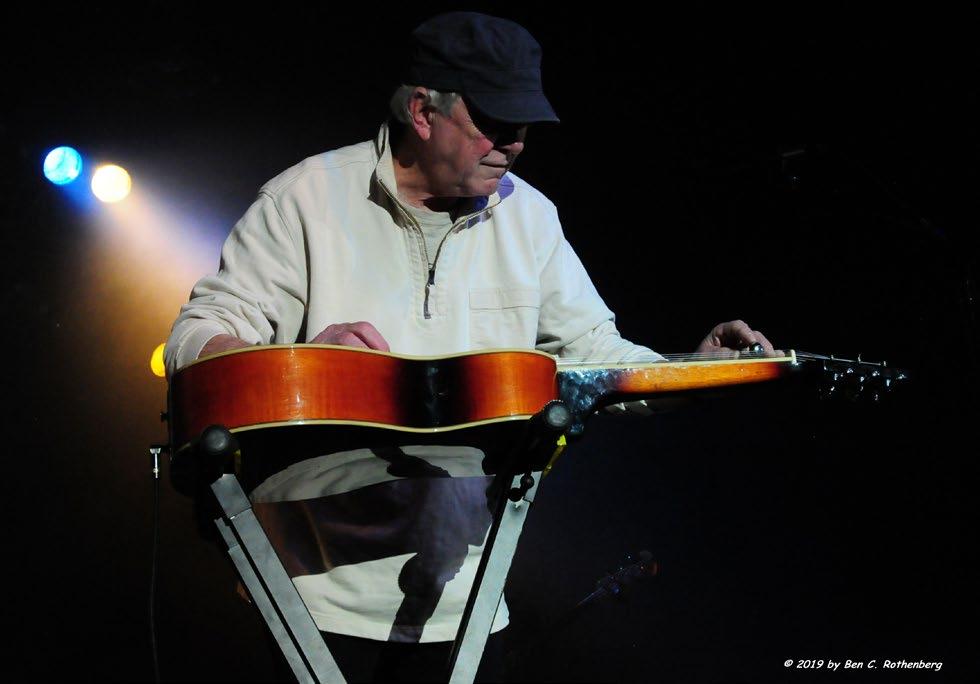
GTR: Okay. RY: Everybody in the band has done a lot of solo records, you know, Richie and Jimmy and Timothy B, and everybody’s done solo records, except for me. At one point I was going to retire. It was about five years ago. I thought, you know, it’s about time to hang it up. And I was just, I like going out and playing shows with my friends, and I was doing a series of dates in California with Jimmy Messina, who I like to go out and work with. One of my best friends ever, probably my best friend from the Poco years. And so we were out playing in California and after a show, a guy came up backstage and he introduced himself, and he said that he had a label and that he was really interested in releasing a solo record on me. And had I ever thought of doing that? So, you know, I hadn’t really. And I was going the opposite direction, but then I thought, “Gee whiz, you know, it’d really be a drag after all these years and everything, if I didn’t have, you know, something that represented me, you know, where I am not hiding behind the Poco banner.” Or not, you know, sharing songwriting and that kind of stuff, but where it was just straight ahead me. And I guess it’s a, what do you call it? An Eagle project or something? Anyway, I came home and I finished a few songs I had been thinking about. And called him back and said, “Let’s do it.” And the label’s Blue Elan and Blue Elan is just the neatest label I’ve ever been on, really totally artistrelated and artist-friendly and protective and helpful. And it’s a great place to be. So, I did Waitin’ for the Sun. I wrote here at the cabin. And it’s a pure Rusty Young record, but I think it was a chance for me to show my part in Poco over the years. Because if you listen to it and you know anything about Poco, you can really see, you know, the impact. My part in Poco over the years. And so, it was really great. And I have, there’s a song on there called My Friend. That is one of my favorite songs I’ve ever written. And it’s a song about the band and the 50 years and all of this, you know, the fact that we still are friends. Well, most of us are still friends. GTR: My Friend, it’s called? My Friend. RY: My Friend. So, it’s really, I just love hit. Richie and Timothy B sang on it with me. And so anyway, I did that. I’m going out cutting a few more songs with them this December. And I’ll probably do another project with Blue Elan. And so that’s what I’m doing. Plus Poco’s doing... You know, there’s this whole thing about people appreciating the bands from the seventies, and so, we’re touring quite a bit. And we do pack. You know, we go out and play with Firefall and Pure Prairie. We’re playing shows with Firefall and Pure Prairie and Jonathan Edwards, and us, these little packages like that. And then we, you know, we do shows that we headline. We’ve headlined a lot of PACs, they call them. Performing Arts Centre’s. In the summer, we do a lot of, you know, Orange County festivals and, you know, all these outdoor, the big outdoor festivals that they have in the summertime. So we, you know, we have a lot of work if we want to do it. And between that and my Blue Elan thing, I’m a busy boy. GTR: Okay, Rusty, isn’t that beautiful? I must get over there and get to see you. I was saying the same thing to the Young Rascals’ Felix, and just wanting to get over there and seeing some legendary people like yourself. Rusty, just briefly, you spoke about the ego thing with the solo album and the Rusty Young name ahead of Poco, for just a moment. And to me, Poco have been an ego-less band. They have provided so many great.. A springboard for so many acts and they’ve remained. And they haven’t lost their relevance or their brilliance of music. RY: Well, thank you. Yeah. You know, to this day, I can still feel that respect that Poco gets, because, you know, we’re playing shows with all these other bands. There’s a real difference in what Poco brings to it, and the audiences that we bring. And a lot of the other bands are envious of the people that keep up with the band. And I appreciate that. Poconuts, they’re called. And they really come out in force and they’re a great asset for the band. The band wouldn’t still be around, if it had... Two or three things. We’ve always had great musicians and great players. So, you know, if you go see a Poco show, you’re always going to see great playing. And we’ve always had great songs. We’re able to place it with the musicianship and the songs and the audiences that, you know, grew up with us. And you put those three things together and it makes for a really great evening of music. We’ve got so much music to draw on. GTR: If I had two lives, Rusty, I would want Poco in both of them. It’s beautiful. So, yeah. Thank you so much. It’s been an absolute pleasure, Rusty Young. RY: Thanks. Thanks. I appreciate the call.
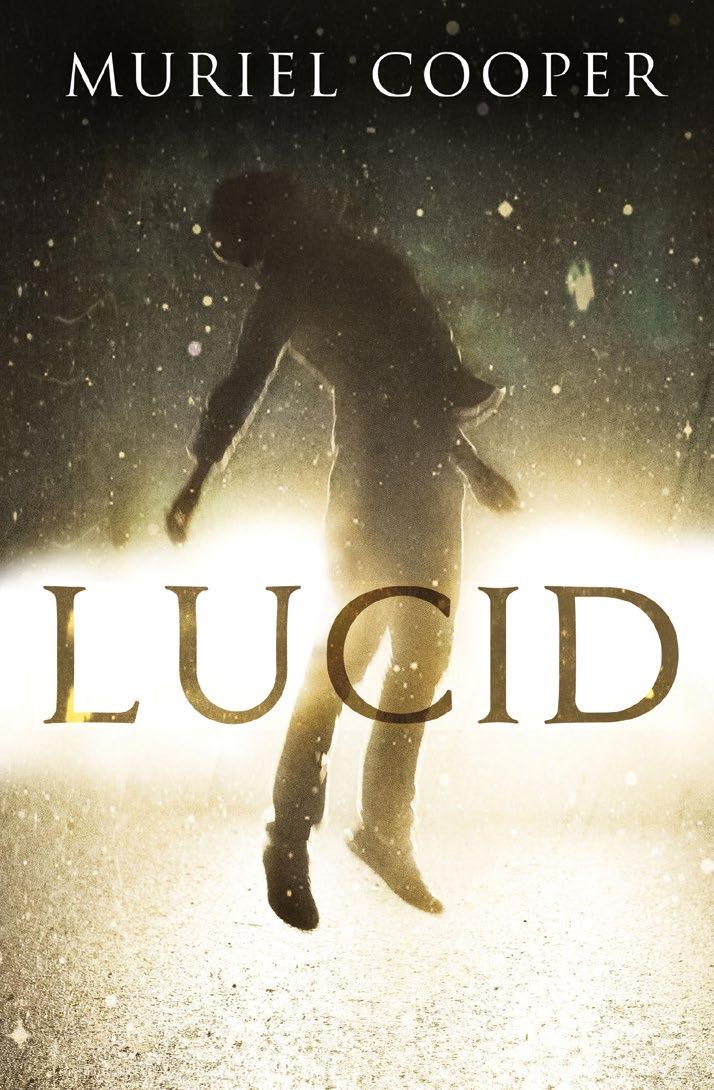
Successful criminal lawyer, Rick Peterson, puts his newfound ability of lucid dreaming to work to create a nostalgic dream destination, Wellstone; a perfect country town where it’s always 1959, until a grisly murder shakes his lucid world.
To save his sanity, he must find out who the murderer is. With the help of his investigator and girlfriend, Lisa Armstrong, he sets out to uncover the truth about Wellstone, and come to terms with his own inner demons. In real life, he is pursed by a Sydney gangster and his beloved stud cattle property is under threat from developers. For Rick Peterson, life in both worlds is anything but dull. Lucid is a psychological murder mystery exploring lucid dreaming and the nature of reality, as well as relationships, Rick’s struggle with his feelings towards women and his growing relationship with Lisa.
Muriel Cooper is a writer, psychologist, and blogger at The Talking Room. Muriel’s highly successful media career included mornings on ABC radio and afternoons on commercial talk station 3AW.Muriel has also written a successful children’s book, The Tiger and the Bridge, and a young adult novel, The Wound. Lucid is the first in a series of mystery fantasies based on lucid dreaming. She lives on the beautiful Mornington Peninsula south of Melbourne, Australia.
When The Smoke Clears
The whole world held its breath as 2020 dawned and Australia was on fire.
In When The Smoke Clears, Surviving the Australian bushfires, fire survivor and author Chrissy Guinery presents the human face behind the shocking figures of destruction and loss, through first-hand accounts of the day to day struggle to breathe, to believe, to love – under a pall of smoke and in the path of fire. ‘My middle-daughter’s house is burning down and I’ve lost contact with my eldest daughter as the fire front threatens her home. It’s the last day of 2019 and it feels like the end of the world.’ So begins this fast-paced, personal and grassroots account of living through a torturous fire season and finding a way to push through to recovery. And while the eyewitness accounts of being caught in a bushfire emergency are remarkable, so too are the insights, advice and lessons learned about what it will take to recover, including from a range of experts. It’s the story of survival that represents the experience of thousands of Australians from the 2019-2020 bushfire season, right through to the impact of the coronavirus. And it also begins to answer the question – how do you live, laugh and hope again after your family has been threatened, homes lost, children terrified and the countryside blackened. When The Smoke Clears is essential reading for anyone in the world who grieved for Australia as it burned, and for anyone at anytime who is wondering where they will find the strength to go on. (A percentage of every book sold goes toward bushfire recover on the South Coast.)
CHAPTER ONE: THEIR HOME IS GONE
From the fireground—December 31, 2019 My middle-daughter’s house is burning down and I’ve lost contact with my eldest daughter as the fire front threatens her home. It’s the last day of 2019 and feels like end of the world. I’m bawling now. I don’t want my daughter’s house to be burned to the ground. I’m desperate to hear from my eldest daughter, caught in the fire further south, out of contact, out there—somewhere. Is she safe? Were they able to get out in time? My mumma-heart is grieving, I long to gather my chickens and snuggle them all close and safe. I want to turn back time. I want to change this crazy day. I want to run. I want to hide. I want to hold my grandchildren. I want to hug my daughters. I want to cry and I want to scream. I’m desperate to see these family members, but I don’t want to leave the ones I’m with. I have five children with partners and all of them have children of their own. Four of these families are surrounded by fires. That means 11 of my 14 grandchildren are somewhere amidst this chaos! Our son Caleb was down visiting from the Gold Coast and left a couple of days ago. I thank God that he and wife Tess and three daughters Peaches, Hopps and Junee are out of harm’s way. They were amazed by the amount of smoke and haze everywhere. Most of the time we try to ignore it, (it has kind of become our ‘norm’), but truth be told, we are sick of living like ‘40-a-day’ smokers. Since mid-October we have been breathing smoke, and that, combined with constant stress and anxiety, is making us all feel so tired. And now this. Now the unthinkable. I feel like I’ve failed my family because I couldn’t keep them safe and protect them. I feel failure creeping up the back of my neck. I know it’s a lie, but it doesn’t stop the feelings, the overwhelming emotions, the grief. It frightens me to think how quickly our world can unravel. I want my family to be with me, to all be together—all my children and their families—so I can take them somewhere safe from all of this. But where? There is nowhere to run. Nobody knows where safety is. Everything is burning. We are blocked on every side. The Princes Highway north and south is closed. The Kings Highway to the west is closed. We’re trapped! I have to get to Kelita, my middle daughter who has just lost everything. I need to hug her, to comfort her, to help her process this tragedy. How could this happen to our family? I desperately want to make everything right, but how can I? It isn’t right. It’s so wrong. No young family should lose their home and everything they own in one fell swoop. It is a cruel waiting game, and I’m torn. I want my family to be with me; to be together. And then, in an instant, I also desperately want to go somewhere by myself and sort this mess out with God. I want to know how and why this happened—to us? I think of all the Scriptures stored up in my heart. I know I can trust Him and rely upon His unconditional love and faithfulness. For more than 40 years I have made a habit of doing just that, and He has never let me down. My heart reassures me that it’s okay, but my mind is all over the shop. Where is my eldest
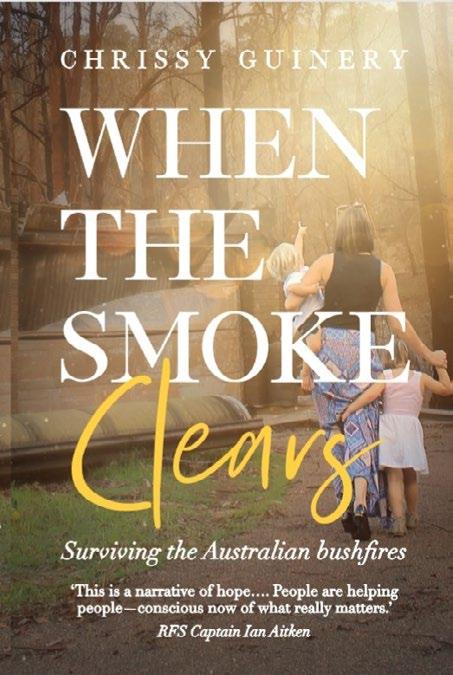
daughter and her family? ‘Have you got them God? Please look after them and keep them safe,’ I plead. I need a little time out. I jump in the shower, turn on the taps, and cold water hits me like a slap in the face. There’s no hot water because there’s no power. The petrol generator in the shed drives the pump for the water, but the gas heater needs electricity to spark it into life. I don’t mind. I don’t need to be comfortable. Being comfortable somehow seems wrong in these circumstances. How can I be comfortable when one of my daughters is out there somewhere trying to escape the fires while another daughter and her family have no home to go back to? I bury my head under the cold spray and I cry. I let the tears flow. It’s a safe space and I need to let things out. Once I start, it’s open the flood gates. I double over and get lost in big, hard, full-on sobs. It’s not controlled and is not pretty. Not even under the flow of the cold water can I pretend to be okay. I don’t want to get out looking puffy-eyed and snotty-nosed but I’ve got no choice. After too many minutes, I realise I have to get out and stop wasting precious water. We’re in a drought and haven’t seen rain for months. I want to curl up and spend more time feeling sorry for myself, but I can’t. I have things to do and people to care for. ‘Get your act together girl,’ I tell myself. And I do— well at least for the moment. Hubby, Step, recognises ‘that face’, of course he does, we’ve been together for 42 years. He knows how upset I am and wraps his arms around me the moment I emerge from my bathroom refuge. We hug and cry together. We’re going to get through this, we assure one another wordlessly. We’re going to stand together. We’re going to stand on our faith. We’ve made it through some tough times and we’ll make it through this. But the enormity of what we’re going through, reeling from, trapped within, is too much to carry. Too much to hold in. Later, we’ll be brave for the family, we know we will. We’ll be their rock… after we cry together in this unguarded moment. Though words may fail us, our hearts don’t. Our faith does not fail us. Our hope will not fail us. We’ll weep in one another’s arms because that’s what married folk do in the midst of crisis. Once dressed, tears and snot in check, I busy myself. I can’t sit back and do nothing, and neither can Step. We have so much adrenaline and nervous energy coursing through our veins, we have to stay busy—or else. I can’t be dwelling on my fears about my eldest daughter or that my middle daughter’s home is now a pile of rubble and ash. I scramble around, picking things up and putting them down again. Step continues to prepare the property so that if the fire does threaten our ‘Long Beach Love Shack’, which the doomsayers are certain will happen, we might have a chance of saving it. As we hear reports of hundreds of homes lost up and down the coast, the likelihood of our place in the bush surviving seems slim indeed. In spite of this, we choose to be optimistic about believing for a good outcome. I have a trained mind. Forty years of walking with God and discovering the Father’s heart, has instilled in me a confidence in the power of prayer. I talk with Him all through the day and night. I feel His presence as strongly as I felt Step’s arms around me earlier. He has protected us in the past and He will protect us in the future. He knows our every need and He promises to hold us and support us through it all. Together, we will get through. He comforts us so that we can go and share the same comfort with those in need. He makes us strong so that we can be ‘a shoulder to cry on’ for those that are hurting. He calls us to be his hands, His feet, His mouthpiece, but most of all He wants us to reveal His heart to those that don’t know Him. A difficult night passes and finally we are able to venture out to try and find our daughter. We drive slowly and cautiously, with headlights on, through thick smoke, past roadblocks and burning buildings, and through deserted streets that are normally spilling over with tourists and holiday-makers. The air is thick, the stench is putrid—almost unbearable with so many homes, shops and businesses burning around us and belching out plumes of toxic smoke. Not surprisingly, more and more people are wearing facemasks to protect themselves, but I can’t help but think their efforts are probably futile. Every second person has had sore eyes and an irritating cough for weeks and now my nose won’t stop running. And then I see Kelita, with her oldest son. Finally, we’ve found them! As we jump out of the car to run to them, my throat tightens as I try to keep myself together. I give her a big mumma-hug, before turning my attention to grandson Harper, who gets called ‘H’. I squeeze him tight and don’t want to let him go—this boy who has endured so much. ‘My house burnt down, Granny,’ he says without emotion. The poor little fella! He is six-years-old. We walk to find Kelita’s husband and the other two kids and we give them their share of hugs and kisses. Step, my 81-year-old Mum, my daughter, her hubby, their three children and I, head to where they are staying for now, grab a cuppa, and settle in to hear about their ordeal. I nurse one-year-old Lennox, while he messily consumes a nectarine, dripping juice onto my tights. I hug threeyear- old London. And then I am riveted as their story unfolds of evacuation and being trapped and fires bursting alight in front of them. They tell of how they received news of their home burning and how Kelita’s brother-in-law was attempting to save it. News that it was too late. News that their home had gone. They share with us about heading back toward their home through what seemed like a warzone, with fires taking down tall trees on both sides of the road, witnessing other people’s houses alight. We’re gripping our seats as her hubby tells of rushing up to Catalina just in time to see the last of the flames engulf what was once his family’s home. He had taken his mobile phone out and filmed his home’s final end, flames leaping from every shattered window, the top story already just rubble on the ground. We gather around his phone and watch the short video together, speechless. It comes to an abrupt end. Our minds can’t fathom it. And we play it again. It is incomprehensible. Nothing seems real. My grandson climbs up onto my lap and looks up at me. He tells me, ‘The fire is a baddie. It’s big and mean and I want to punch it and knock it down.’ Don’t we all, mate, don’t we all. I’ve brought some clothes for each of the kids from my youngest daughter, who has five children of her own. Her kids also raided their toy boxes and H receives the red motorbike his cousin Hayz has generously chosen for him. I leave him sitting on my lap as the adults talk over his head. He drives his motorbike on the table, backward and forwards, props it up on its stand, picks it up, drives it again, turns it over, spins the wheels, and drives it some more. The motorbike, this priceless gift from his cousin, means the world to him. He looks up at me after half an hour and says, ‘I have one toy now Granny’. I swallow hard and fight back the tears. My heart breaks into a million pieces.
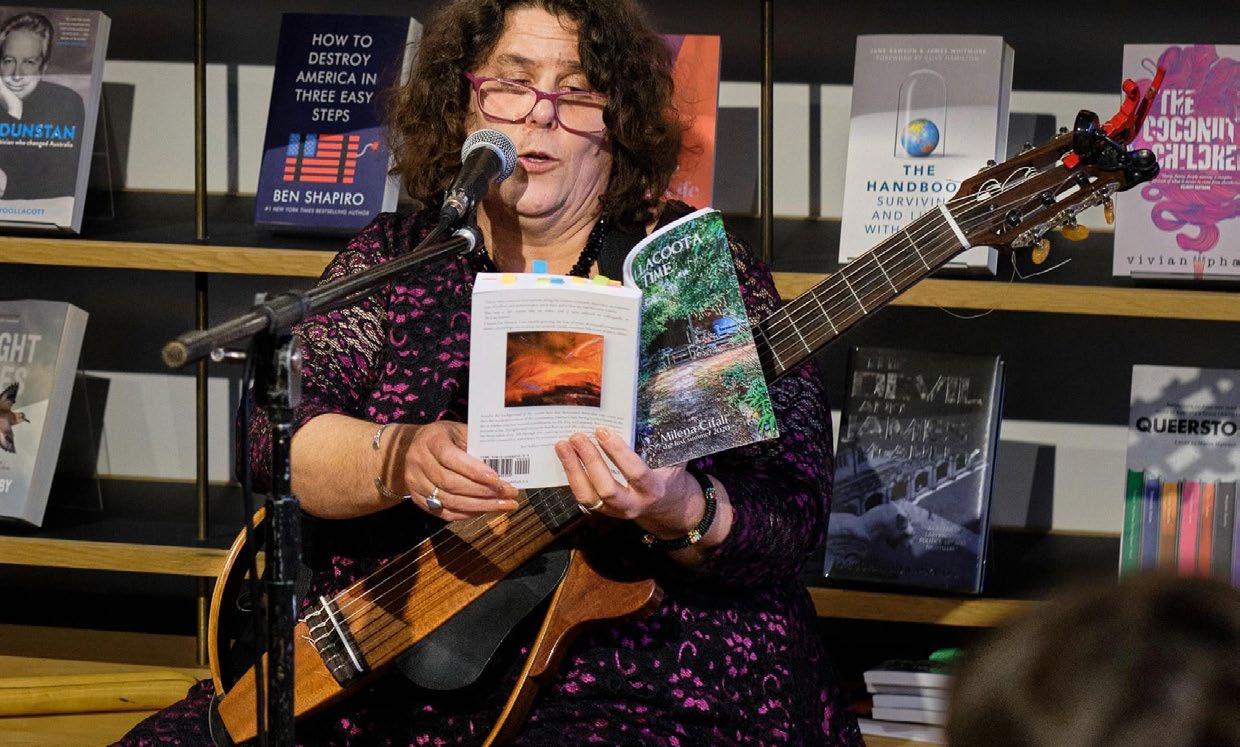
Award winning Musician and Poet Milena Cifali lost her home instruments and beloved parrots in the Mallacoota bushfires New Year’s Eve 2019.
Out of adversity Milena shares her journey towards recovery, aiming to connect with and provide solace to fire ravaged communities as well as others who have suffered loss. Set against the backdrop of the unprecedented bushfires season and the coronavirus pandemic, Mallacoota time showcases Milena’s writing, poetry, lyrics and photography in a stirring and timely work. Milena Cifali, Canberra based award-winning songwriter, published poet and author, lost her home and slice of paradise in Mallacoota on New Year’s Eve 2019. Milena studied classical guitar at the ANU with Timothy Kain graduating in 2000, going on to be a founding member of the Canberra classical guitar Society and a well respected performer and teacher. In 2011 she left Canberra and began touring and performing along the eastern seaboard with her partner Jim Horvath. In March 2019 Milena was invited by Canberra Poet John Passant to collaborate on his published anthology and set about composing music for their CD ‘Whose Broken is this?’ which they toured with great success. In late 2019 Milena was selected as a semifinalist in the UK international songwriter’s competition receiving a judges commendation. Having performed to acclaim at national folk festivals, COVID-19 restrictions slowed her travels. After losing her home Milena and her partner settled in Canberra where they currently reside tending to the local wildlife. Milena is a keen photographer and birdwatcher
REVIEW:
Amidst the background of the recent fires that devastated Australia’s East Coast and then the social dislocation of the coronavirus, Milena Cifali, having lost her home to the fire in Mallacoota, has created a meditation on life, loss and renewal. This is a poignant account of the thoughts and emotions that flare up and affect the soul when one’s home has been taken away. All through this moving account is a yearning for ‘home’ and a search for connection, and always the restorative power of music and storytelling.
JIM SAKKAS
Award-winning author and Mallacoota resident.
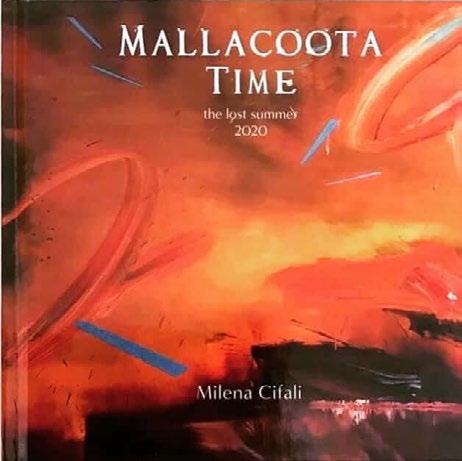
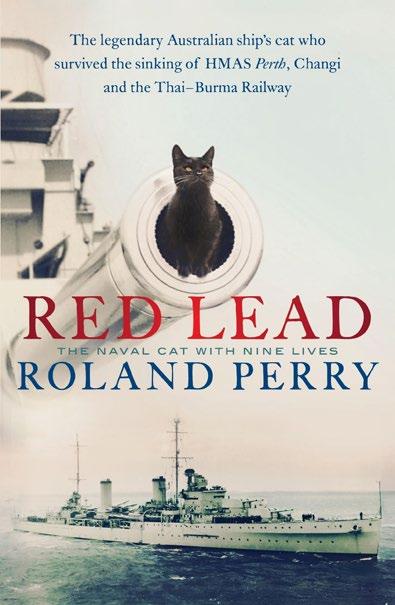
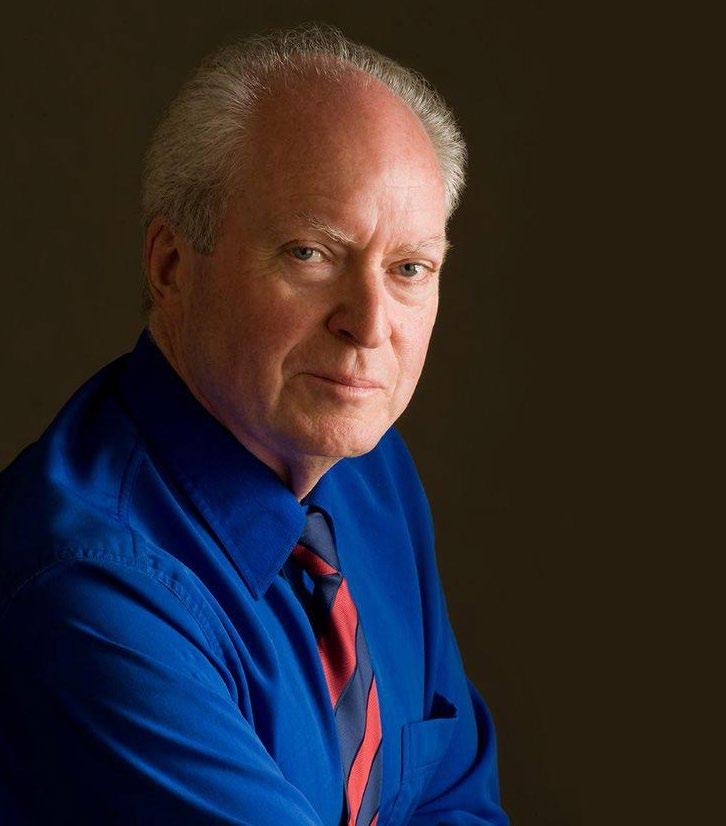
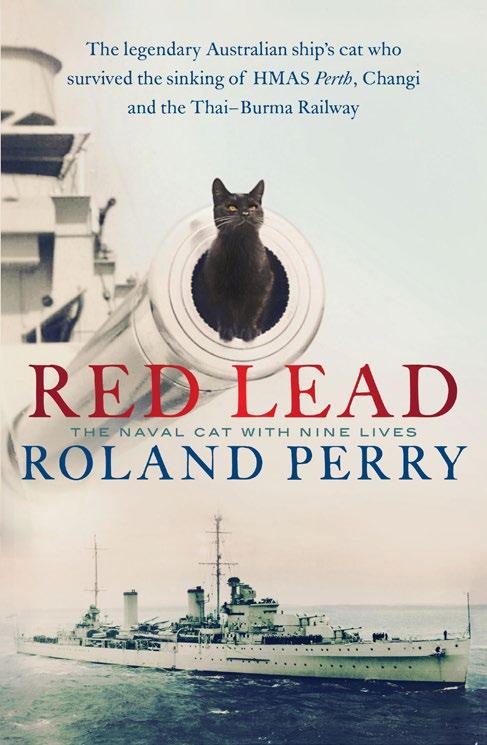
Roland Perry is one of Australia’s best known authors. He has written 35 books, many of them bestsellers, including The Queen, Her Lover and the Most Notorious Spy in History, Horrie the War Dog, Bill the Bastard, Don Bradman, The Changi Brownlow, The Australian Light Horse and Monash: The Outsider Who Won a War.
The legendary Australian ship’s cat who survived the sinking of HMAS Perth and the ThaiBurma Railway.
Just after midnight on 1 March 1942, Australia’s most renowned cruiser, HMAS Perth, was sunk by Japanese naval forces in the Sunda Strait off the coast of Java. Of the 681 men aboard, 328 survived the sinking and made it to shore - and one cat. Her name was Red Lead, and she was the ship’s cat, beloved by the crew and by the Perth’s legendary captain Hector Waller. Roland Perry was only 8 years old when he first heard about the cat who survived the sinking of the HMAS Perth in WWII. This tantalising fragment stayed with him over the decades and he has finally written the whole extraordinary story in Red Lead: The Naval Cat with Nine Lives. Surviving shellfire, torpedoes and the fierce currents of the Sunda Strait was only the beginning of the terrible trials Red Lead and the surviving crew were to face over the next three-and-a-half years. From Java to Changi and then on the Thai-Burma Railway, Red Lead was to act as companion, mascot and occasional protector for a small group of sailors who made it their mission to keep her alive in some of the most hellish prison camps on earth. In Perry’s inimitable style, this incredible true story is based on extensive research and the facts brought to life through dramatisations of events and personalities, and their interactions. Perry first researched the background of Red Lead in Java in 1979. He continued with further research in 2018 which included the AWM files on HMAS Perth and on-the-ground research throughout South East Asia. Red Lead’s extraordinary story of courage, loyalty and love amidst battle, imprisonment and death is brought vividly to life by bestselling author Roland Perry.




